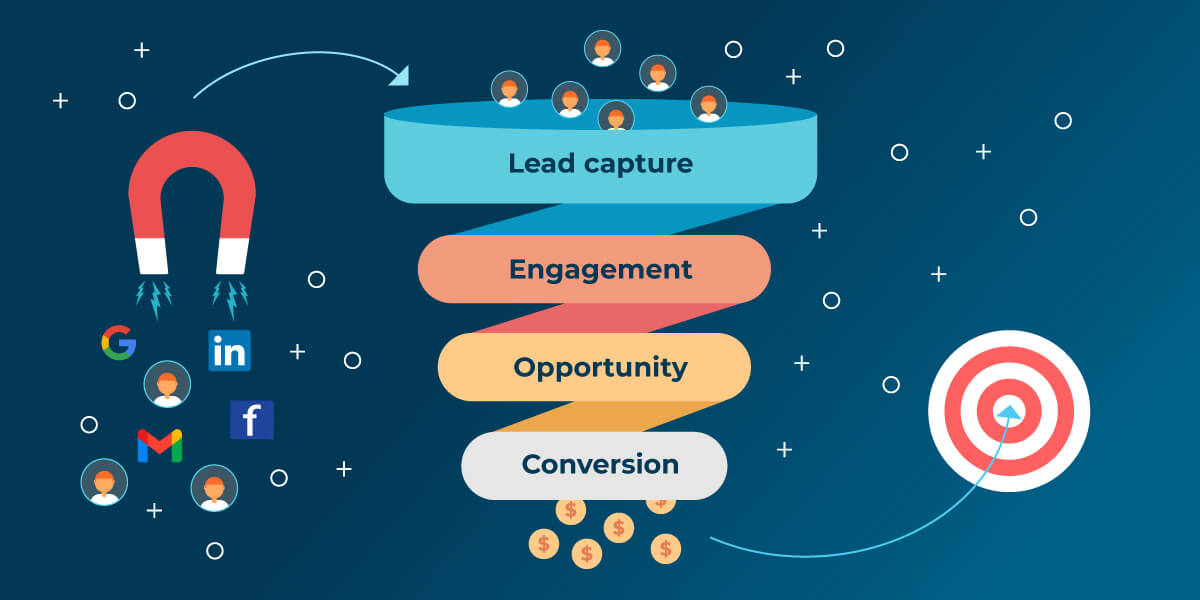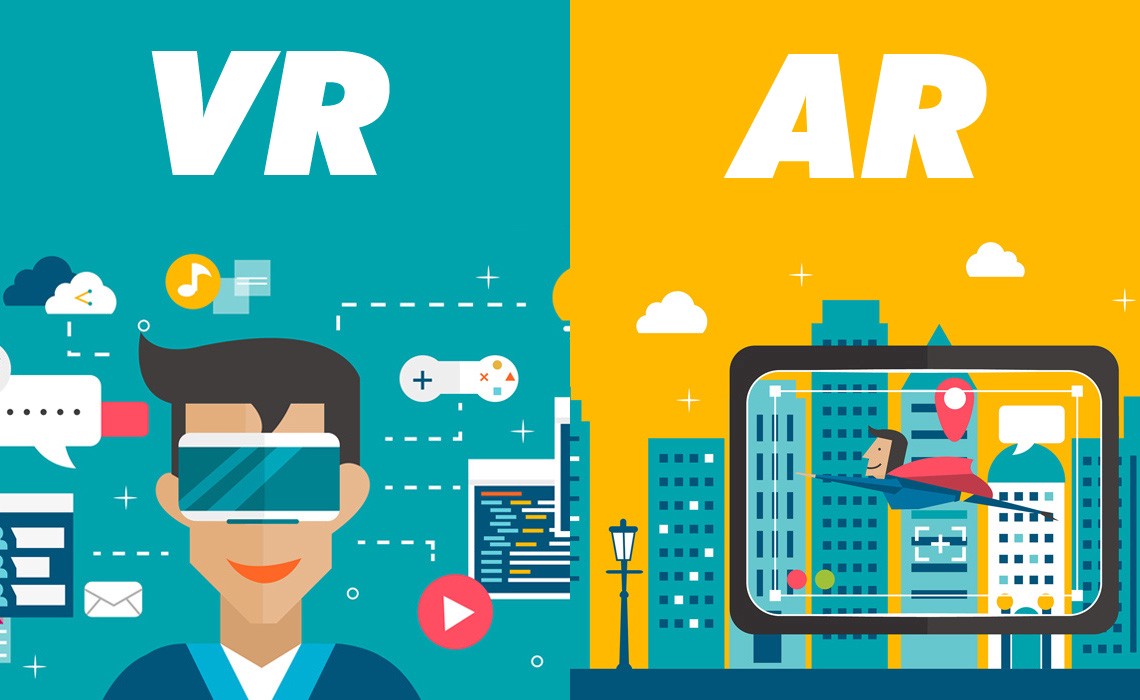The Future of Selling Homes: Top Digital Marketing Strategies for Real Estate Agents
- Get link
- X
- Other Apps
The real estate industry has witnessed a massive transformation in recent years, thanks largely to the advent of digital marketing. Gone are the days when real estate agents relied solely on traditional marketing methods like print ads, billboards, or word-of-mouth. Today, the digital landscape offers a plethora of opportunities for real estate professionals to connect with potential buyers, showcase properties, and ultimately, close more deals.
Looking ahead to 2024, there are several encouraging trends for real estate agents and developers:
- Since 2021, residential property sales have surged by 51%. (Source Financial Express)
- The rental market is cooling down, making way for a continued seller’s market with increasing demand and rising property prices. (Source: Real Wealth)
- A shift back to hybrid and office-based work is on the horizon, with 9 out of 10 US companies moving away from remote-only models, which will likely boost demand in major metropolitan areas. (Source: HR Drive)
- More than 44% of new homebuyers now begin their search online, with growing interest in smart home technology and online property purchases—a clear sign that technology adoption in real estate will continue to accelerate. (Source: Finances Online)
- With property rent expected to climb to 8.4% by mid-2023, younger buyers and first-time homeowners are expected to turn more towards purchasing homes. (Source: CNBC)
For real estate professionals, especially those in dynamic markets, leveraging digital marketing services will be crucial to staying ahead in this evolving landscape.
In this blog post, we'll explore the top digital marketing strategies that real estate agents can leverage to stay ahead of the competition. Whether you're a seasoned realtor or just starting, these strategies will help you navigate the future of selling homes.
1. Building a Strong Online Presence
Optimizing Your Website
Your website is the cornerstone of your online presence. It’s where potential buyers go to learn more about you and your listings. A well-optimized website should be:
- User-Friendly: Easy navigation is key. Ensure that visitors can easily find information about properties, your services, and how to contact you.
- Mobile-Responsive: With over half of all web traffic coming from mobile devices, your site must look and function well on smartphones and tablets.
- SEO-Optimized: Implementing effective SEO strategies will help your website rank higher in search engine results, making it easier for potential clients to find you. Focus on local SEO by incorporating keywords related to your market area, such as "homes for sale in [city]" or "real estate agents in [neighborhood]."
Creating Valuable Content
Content marketing remains a powerful tool for real estate agents. By providing valuable information to your audience, you can establish yourself as an expert in the field and build trust with potential clients. Consider incorporating the following into your content strategy:
- Blog Posts: Write about local market trends, tips for first-time homebuyers, or guides on how to sell a home.
- Community Pages: Create dedicated pages on your website that highlight different neighborhoods, including information on schools, amenities, and local attractions.
- Listicles: Offer lists such as "Top 10 Tips for Staging Your Home" or "5 Mistakes to Avoid When Buying a House."
Regularly updating your website with fresh content not only keeps your audience engaged but also improves your SEO.
2. Harnessing the Power of Social Media
Choosing the Right Platforms
Not all social media platforms are created equal, and not all will be suitable for your business. Focus on the platforms where your target audience spends the most time:
- Facebook: Ideal for reaching a broad demographic. Use Facebook to share property listings, client testimonials, and market updates.
- Instagram: Perfect for showcasing high-quality images and videos of properties. Instagram Stories and Reels can be used for virtual tours and behind-the-scenes content.
- LinkedIn: Great for building professional connections and establishing yourself as an industry expert. Share market insights, blog posts, and success stories through LinkedIn.
Engaging Content Strategies
To make the most of your social media presence, your content should be engaging, informative, and visually appealing:
- Virtual Tours: Use video content to create virtual tours of your listings. This allows potential buyers to explore properties from the comfort of their homes.
- Client Testimonials: Share positive feedback from past clients to build credibility and trust.
- Live Q&A Sessions: Host live sessions where you answer common questions about buying or selling a home. This can help establish you as an approachable expert in the field.
Remember to interact with your audience by responding to comments and messages promptly. Social media is not just a broadcasting tool but also a platform for building relationships.
3. Investing in Paid Advertising
Google Ads and PPC Campaigns
Google Ads is a powerful tool for real estate agents looking to get their listings in front of a targeted audience. Pay-per-click (PPC) campaigns allow you to bid on keywords that potential buyers are searching for, such as "buy a home in [city]" or "best real estate agents near me." When done right, PPC campaigns can drive high-quality traffic to your website, resulting in more leads.
- Targeted Keywords: Focus on long-tail keywords that are specific to your market and have lower competition. This can result in a higher ROI.
- Ad Extensions: Utilize ad extensions to include additional information like your contact details, location, and even links to specific property listings.
Social Media Ads
Social media platforms like Facebook and Instagram offer robust advertising options that allow you to target specific demographics, interests, and behaviors. This means you can create highly targeted ad campaigns that reach the right people at the right time.
- Retargeting Ads: Use retargeting to reach people who have already visited your website or interacted with your content. This keeps your brand top of mind as they continue their home-buying journey.
- Carousel Ads: Showcase multiple properties in a single ad using the carousel format. This is particularly effective on platforms like Instagram and Facebook, where visual appeal is crucial.
4. Email Marketing for Real Estate
Building an Email List
Your email list is one of your most valuable assets. To build a strong list:
- Lead Magnets: Offer valuable resources such as a home-buying guide, market reports, or checklists in exchange for email sign-ups.
- Website Pop-Ups: Use non-intrusive pop-ups on your website to encourage visitors to subscribe to your newsletter.
Crafting Effective Email Campaigns
Once you have a list, it’s important to communicate regularly with your subscribers. Some email marketing strategies include:
- Drip Campaigns: Set up automated sequences that guide leads through the buying process, providing them with relevant information at each stage.
- Property Alerts: Send out alerts about new listings that match the preferences of your subscribers.
- Market Updates: Keep your audience informed about the latest trends and developments in the real estate market.
Remember to personalize your emails by addressing subscribers by name and tailoring content to their specific needs and interests.
5. Leveraging Video Marketing
Virtual Tours and Property Walkthroughs
Virtual tours have become increasingly popular, especially in a post-pandemic world where buyers want to explore properties remotely. Tools like Matterport and CloudPano make it easy to create immersive 3D tours that allow potential buyers to navigate through a property as if they were there in person.
- Live Virtual Tours: Host live virtual tours where you walk potential buyers through a property in real time, answering their questions as you go.
- Pre-Recorded Walkthroughs: Create high-quality video walkthroughs of your listings. These videos can be shared on your website, social media, and email campaigns.
Educational and Market Update Videos
Video is also an excellent medium for sharing market insights and educating your audience:
- Market Update Videos: Provide regular updates on the real estate market, discussing trends, pricing, and what buyers and sellers should expect.
- How-To Guides: Create short videos that answer common questions, such as "How to Stage Your Home for Sale" or "Understanding Mortgage Rates."
These videos not only engage your audience but also position you as a knowledgeable and trustworthy expert.
6. Utilizing CRM Tools for Lead Management
Automating Follow-Ups
One of the most significant benefits of using a CRM is the ability to automate follow-ups. You can set up automated email sequences that trigger based on a lead’s actions, such as visiting your website or attending an open house. This ensures that you stay top-of-mind with potential buyers without the need for constant manual effort.
Segmenting Leads
CRMs allow you to segment your leads based on various criteria, such as their location, buying intent, or stage in the sales funnel. This enables you to tailor your communication and marketing efforts to meet the specific needs of each segment, increasing the likelihood of conversion.
Tracking Performance
A CRM provides valuable insights into the effectiveness of your marketing campaigns. You can track metrics like lead sources, conversion rates, and the ROI of different marketing channels. This data-driven approach allows you to refine your strategies over time, ensuring that you are always working towards the most effective methods of lead generation and conversion.
7. Exploring Emerging Technologies
Artificial Intelligence and Chatbots
AI-powered chatbots are becoming increasingly popular in real estate for their ability to engage with website visitors 24/7. These chatbots can answer common questions, provide property recommendations, and even schedule viewings, freeing up your time to focus on more complex tasks.
- Personalized Recommendations: Advanced chatbots can analyze a user’s preferences and behavior to offer personalized property recommendations, enhancing the user experience and increasing the likelihood of conversion.
- Lead Qualification: Use chatbots to qualify leads by asking pre-set questions to determine a visitor’s readiness to buy or sell, ensuring that your time is spent on the most promising prospects.
Virtual and Augmented Reality
Virtual Reality (VR) and Augmented Reality (AR) are game-changers in the real estate industry, offering potential buyers an immersive experience that goes beyond traditional photos and videos.
- Virtual Reality Home Tours: VR tours allow buyers to explore a property in a fully immersive environment, giving them a true sense of space and scale.
- Augmented Reality Staging: AR technology can be used to digitally furnish a home, allowing buyers to visualize how different layouts and designs would look in the space.
Incorporating YouTube marketing into your strategy allows you to leverage the platform's vast audience, enhancing visibility and engagement. These technologies not only enhance the buyer’s experience but also set you apart from competitors who may still be relying on more traditional methods.
8. The Importance of Reviews and Testimonials
Encouraging Satisfied Clients to Leave Reviews
After successfully closing a deal, encourage your clients to leave a review on platforms like Google My Business, Zillow, or your Facebook page. These reviews will help build your credibility and attract new clients.
- Make It Easy: Provide clients with a direct link to your review page to simplify the process.
- Follow Up: Send a follow-up email a few days after the transaction, thanking them for their business and gently reminding them to leave a review.
Showcasing Testimonials
Feature testimonials prominently on your website and social media channels. Video testimonials can be particularly compelling, as they allow potential clients to see and hear about positive experiences directly from past clients.
9. Hosting Webinars and Virtual Events
Choosing Relevant Topics
When hosting a webinar, choose topics that are relevant to your audience’s needs and concerns. Some ideas include:
- First-Time Homebuyer Seminars: Provide tips and advice for those new to the home-buying process.
- Market Trend Analysis: Discuss current trends in the real estate market and what buyers and sellers can expect in the coming months.
- Investment Opportunities: Share insights on the best real estate investment opportunities in your area.
Promoting Your Events
Promote your webinars and virtual events through email marketing, social media, and your website. Offer attendees valuable takeaways, such as a downloadable guide or access to exclusive content, to encourage participation and engagement.
10. Staying Ahead with Analytics and Continuous Improvement
Analyzing Performance Metrics
Regularly review the performance of your digital marketing campaigns using tools like Google Analytics, Facebook Insights, and your CRM’s reporting features. Pay attention to key metrics such as:
- Website Traffic: Monitor how many visitors your website receives and where they are coming from.
- Lead Conversion Rates: Track how many leads you generate from your campaigns and what percentage of them convert into clients.
- Engagement Metrics: Measure the engagement levels of your social media posts, emails, and other content.
Adjusting Your Strategy
Based on your analysis, be ready to tweak and adjust your strategies. If a particular campaign isn’t performing as expected, consider experimenting with different content formats, messaging, or targeting options. Continuous improvement is key to staying ahead in the competitive real estate market.
Conclusion
The future of selling homes is undeniably digital. By leveraging these top digital marketing strategies, real estate agents can effectively reach and engage with potential clients, showcase properties in innovative ways, and ultimately drive more sales. Whether you’re just starting out or looking to enhance your existing marketing efforts, these strategies will help you stay ahead of the curve in an ever-evolving industry.
Remember, the key to success in digital marketing is consistency and adaptability. Stay up to date with the latest trends, continually refine your approach, and always prioritize the needs and preferences of your target audience. If you are looking for digital marketing services in Kolkata to boost your real estate business, it’s essential to partner with experts who understand the unique dynamics of the local market. With the right strategies in place, your success in the real estate industry is just a click away.
- Get link
- X
- Other Apps










Comments
Post a Comment